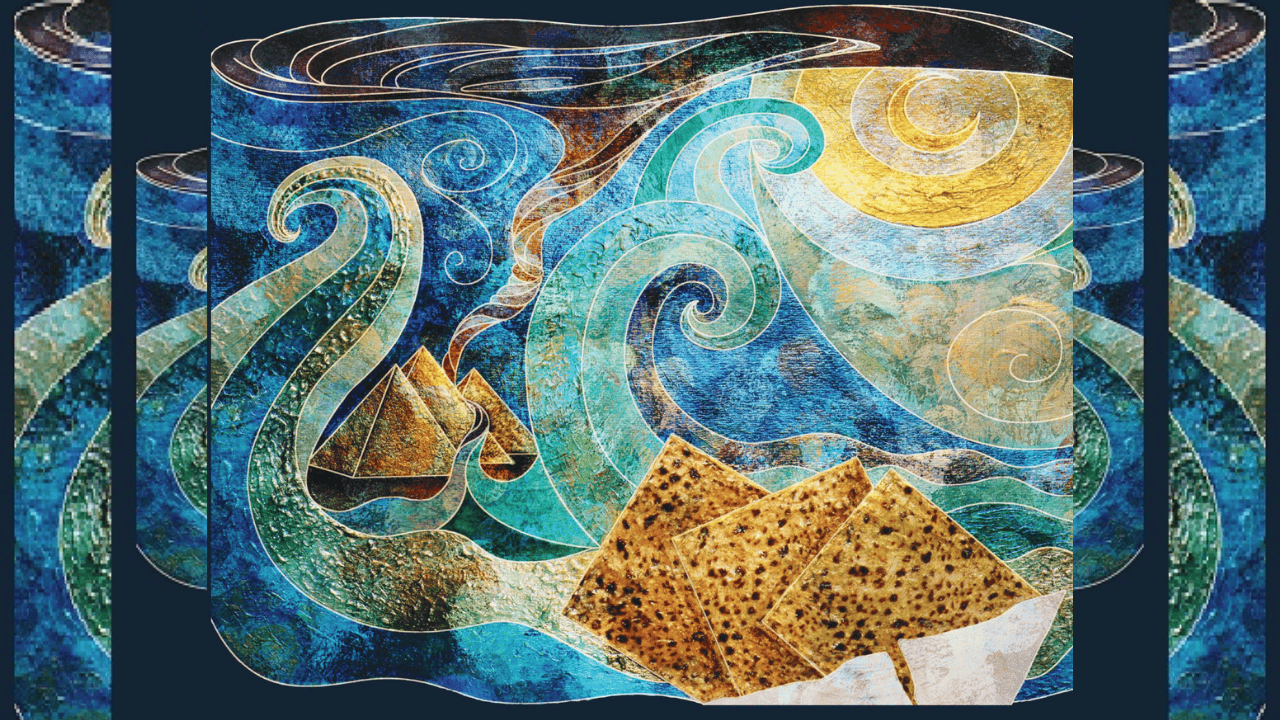Crossing the Reed Sea and observing the Egyptians drowning in the sea marks the end of the Jewish people’s exile in Egypt, the culmination of years of slavery and oppression (Exodus 15:1-19). The Midrash teaches that God’s revelation at the sea was so great that the simplest handmaiden witnessed more than even Ezekiel the prophet did in his Vision of the Chariot (Mechilta 15:2). The people spontaneously transformed the Divine revelation they experienced into joyous song.
According to tradition there are ten archetypal songs sung throughout history; the Song of the Sea is one of them. Nine have already been sung and were recorded in the Tanach while the tenth culminating song is to be sung in the Messianic era. These songs were sung by men and women, kings and judges, lone individuals and the entire people. Targum Yonatan, in commenting on the first verse of King Solomon’s Song of Songs, enumerates them. Of the nine songs only two of them were sung by the entire nation of Israel: the Song of the Sea, sung at the beginning of the people’s sojourn in the desert, and the Song of the Well, sung at the end of the sojourn. (See The Mystical Power of Music, pp. 32-37, for more on the ten archetypal songs.)
After the people of Israel sang their song, the Torah states: “And Miriam, the prophetess, the sister of Aaron, took a timbrel in her hand, and all the women went out after her with timbrels and dances” (Exodus 15:20). Noting the fact that Miriam is referred to as a prophetess in this text, the commentators explain that Miriam had foreseen the miraculous salvation at the sea; this was why she had brought timbrels to accompany the singing and dancing.
Another reason that prophecy is mentioned here is that throughout Jewish history music has been deemed one of the ways to enter a prophetic state. An important source for the intimate connection between music and prophecy is the Mishnah’s description of Simchat Beit Hasho’evah, the water drawing ceremony, which took place in the Temple every Succot. The Mishnah relates how joyous music and song filled the air as water was festively drawn each day from a spring in Jerusalem and brought in a great procession to the Temple altar over which it was poured the following morning. This libation symbolized the people’s prayer for rain and sustenance. Throughout the evening, the generation’s most illustrious sages would lead the people in joyous singing and dancing — praising God to the accompaniment of the Levites who played on instruments too numerous to count. Summing up the incredible joy at this celebration, the Talmud states, “Anyone who has not seen Simchat Beit Hasho’evah has never really seen true joy” (Sukkah 5:1). Although on a peshat level, clearly only water was drawn, the words “Simchat Beit Hasho’evah” mean, literally, “The Joy of the House of Drawing.” What was actually drawn goes unmentioned. Responding to their own rhetorical question – what then were they drawing if not water? – the Sages explain that the spirit of prophecy was being drawn and recount that Jonah first received prophecy at one of these evenings.
Although we tend to think of prophecy as God’s attempt to transmit particular messages to the entire Jewish people by imparting them to his holy prophets, the Ramchal (Rabbi Moshe Chaim Luzzato) expands this definition significantly. In his book Derech Hashem he describes prophesy as a state of consciousness that is achieved when an individual experiences an intense bond with God and can actually feel that attachment. This state of mind lends itself to receiving deep insights, inspiration, and knowledge. In other words, one does not need to be a prophet charged with delivering God’s message to the Jewish people to experience a prophetic state.
Although there are a number of ways to become a fitting vessel for obtaining Divine inspiration and prophetic experience, perhaps the easiest to comprehend and use is music; for music penetrates the heart, mind, and soul in a manner unlike nearly any other experience. It allows the soul to soar to heavenly heights, giving wing to peoples’ most glorious aspirations and dreams, and expression to their deepest pain and existential loneliness. Music is a cosmic language that unites the physical and spiritual, body and soul, universal and particular, while simultaneously transcending time and temporal space altogether. It was exactly this lofty experience that the people of Israel achieved as they sang the Song of the Sea together. (See “The Spirit of Prophecy and Song” for further discussion about prophecy and song.)







